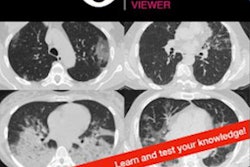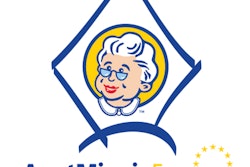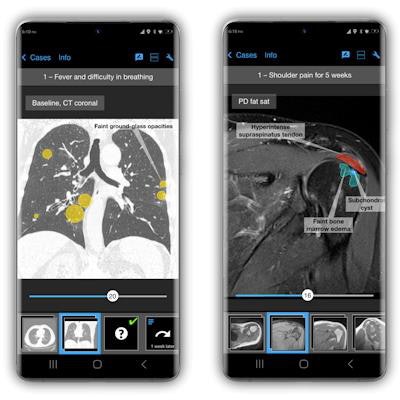
A largely free interactive radiology training app in COVID-19 and musculoskeletal (MSK) disease recognition will be available on Android devices from 8 November to coincide with the International Day of Radiology. The developers are convinced this will have a major impact on uptake.
BerlinCaseViewer had around 600 users a year ago, when the app was only available on iPad. It now has 6,500 users worldwide, partly due to its availability on iPhones and Mac computers.
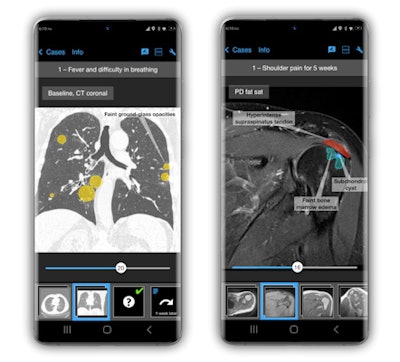 The app's colored overlays show specific features of case images. All images courtesy of Dr. Kay-Geert Hermann.
The app's colored overlays show specific features of case images. All images courtesy of Dr. Kay-Geert Hermann."It was a huge feat of engineering to transfer the app to the smaller screen and retain the usability of the slider bar and touch screen zoom in and out capabilities," app founder Dr. Kay-Geert Hermann, consultant radiologist at Charité University Hospital in Berlin, told AuntMinnieEurope.com.
"Young people will know instinctively how to use the app, as it applies the same hand gestures as Instagram and WhatsApp which aren't available on a normal PACS viewer," he added.
The path ahead
BerlinCaseViewer was runner-up in the best new radiology software category of the 2021 EuroMinnies awards. It has built a notable social media presence, with followers and app users around the globe, but particularly China, India, and Latin America, according to Hermann. Now, in collaboration with an IT team in Pakistan, the developers are reaching out to Android users as well, in part to facilitate use of the app in regions where iPads and iPhones are less common.
"Over the next six months, with the release of the Android version, we are expecting our user base to grow to over 10,000," he said.
The move is the latest in a series of realized and planned developments for the app. It began life as an interactive iPad-based training solution for rheumatology workshops developed in 2014 by Hermann and his team at BerlinFlame GmbH, before being reworked and relaunched in 2019 as a free and paid-for training tool for MSK pathologies and later as an educational app in the fight against COVID-19.
Primarily an interactive quiz-based training tool, the app guides users through cases with multiple-choice questions on corresponding images. Annotated and highlighted overlays reveal and explain specific features. The app, which is available in English, German, French, Spanish, Portuguese, and a range of other languages, also provides patient history for each case to be solved.
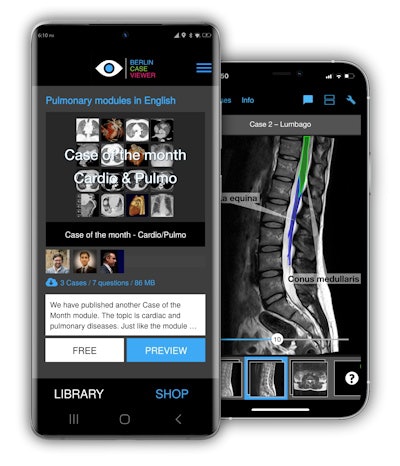 Collaboration with Romanian and Pakistani IT teams has allowed the app's technology to be transferred to a smaller screen.
Collaboration with Romanian and Pakistani IT teams has allowed the app's technology to be transferred to a smaller screen.Besides the COVID-19 recognition module, a second heart and lung module trains radiologists to recognize rare conditions. There are also eight MSK pathology modules, four of which, developed in the past 12 months, focus on arthritis.
While the COVID-19 module and some of the MSK modules are free, the others can be bought for around 6 to 8 euros each, and there is no monthly subscription, noted Hermann.
Future plans
In January 2022, the app will also add a module on Latin American diseases, to help European and U.S. doctors understand these lesser-known pathologies. Case contributions from the region's radiologists are being coordinated by Dr. Aline Serfaty from Brazil.
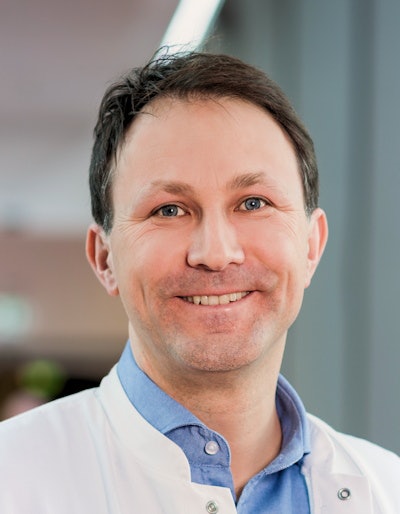 Dr. Kay-Geert Hermann from Berlin.
Dr. Kay-Geert Hermann from Berlin.Then, in March, German users will be able to gain continuing medical education (CME) certification after completing units, on condition they provide 70% correct answers per module. The app's core team of 10 comprising Hermann, three IT specialists, three design and communication experts, and three rheumatologists who serve as scientific advisors, hopes to extend this capacity for CME point allocation to users in other countries such as France, Portugal, Spain, U.K., and the U.S., the latter boasting the app's largest user base after Germany.
"The idea is to reach as many professionals as possible, not just radiologists but also orthopedic surgeons, rheumatologists, and medical students," Hermann said.
So far cases included in the app have been submitted by invitation, but also in March the team will launch an open platform for case submission. After review, cases will be selected for publication in the app.
To download the app, go to the BerlinCaseViewer website.





